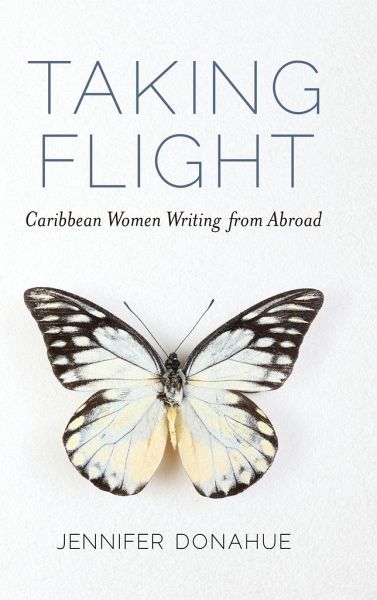
Taking Flight
Caribbean Women Writing from Abroad
Versandkostenfrei!
Versandfertig in 1-2 Wochen
113,99 €
inkl. MwSt.
Weitere Ausgaben:

PAYBACK Punkte
57 °P sammeln!
Caribbean women have long utilized the medium of fiction to break the pervasive silence surrounding abuse and exploitation. Contemporary works by such authors as Tiphanie Yanique and Nicole Dennis-Benn illustrate the deep-rooted consequences of trauma based on gender, sexuality, and race, and trace the steps that women take to find safer ground from oppression. Taking Flight examines the immigrant experience in contemporary Caribbean women's writing and considers the effects of restrictive social mores. In the texts examined in Taking Flight, culturally sanctioned violence impacts the ability ...
Caribbean women have long utilized the medium of fiction to break the pervasive silence surrounding abuse and exploitation. Contemporary works by such authors as Tiphanie Yanique and Nicole Dennis-Benn illustrate the deep-rooted consequences of trauma based on gender, sexuality, and race, and trace the steps that women take to find safer ground from oppression. Taking Flight examines the immigrant experience in contemporary Caribbean women's writing and considers the effects of restrictive social mores. In the texts examined in Taking Flight, culturally sanctioned violence impacts the ability of female characters to be at home in their bodies or in the spaces they inhabit. The works draw attention to the historic racialization and sexualization of black women's bodies and continue the legacy of narrating black women's long-standing contestation of systems of oppression. Arguing that there is a clear link between trauma, shame, and migration, with trauma serving as a precursor to the protagonists' emigration, Jennifer Donahue focuses on how female bodies are policed; how moral, racial, and sexual codes are linked; and how the enforcement of social norms can function as a form of trauma. Donahue considers the relationship between trauma, shame, and sexual politics and investigates how shame works as a social regulator that frequently leads to withdrawal or avoidant behaviors in those who violate socially sanctioned mores. Most importantly, Taking Flight positions flight as a powerful counter to disempowerment and considers how flight, whether through dissociation or migration, functions as a form of resistance.














